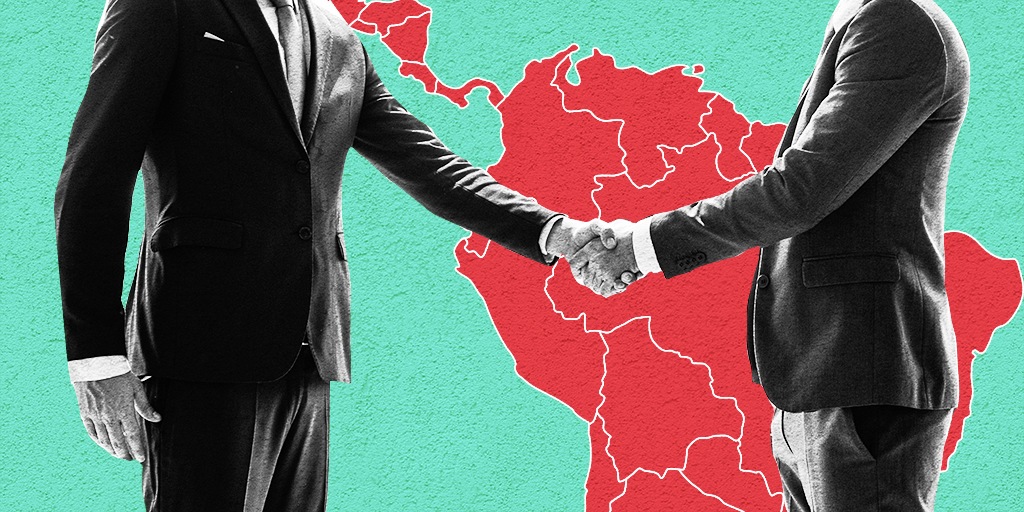27RIO DE JANEIRO, BRAZIL – The spread of Covid-19 in Latin America is fuelling corruption in its various countries, ranging from price inflation to cases of economic exploitation and connections between unscrupulous politicians and entrepreneurs.

The finding is reported in an article published May 27th by the Associated Press (AP), which analyzes virtually all Latin American states, with a reference to Brazil, the second country in the world in terms of number of cases of the novel coronavirus, behind only the United States.
According to AP, the Brazilian police have set up a task force to investigate pandemic-related crimes called ‘Corona Jato’, a reference to the most recent major corruption scandal in Brazil, ‘Lava Jato’, which investigated billions stolen from large state companies.
On Tuesday, the governor of Rio de Janeiro, Wilson Witzel, was the target of a search and seizure operation following an investigation into US$150 million (R$800 million) spent on the construction of field hospitals during the increase in Covid-19 cases.
The surprise search of the governor’s mansion and ten other residences in Rio de Janeiro sparked confusion among the local political class, given that Witzel is a critic of President Jair Bolsonaro, who accuses him of boycotting federal measures to fight the novel coronavirus.
In a case that apparently bears the traces of political corruption, Witzel denied any boycott and accused Bolsonaro of ordering the Federal Police action as retaliation.
In other countries, from Argentina to Panama, several senior government officials have been forced to resign as reports of fraudulent purchases of ventilators, masks, and other medical equipment were uncovered, AP reported.
Embezzlement and stealing are driven by the random but typically high prices of producers, where profit comes from political connections of intermediaries who seize the opportunity to make a profit.
“Whenever there is a complicated situation, the spending rules are relaxed and there is always someone looking for ways to make a profit,” said José Ugaz, the former Peruvian public prosecutor who put ex-President Alberto Fujimori in jail and was the secretary-general of Transparency International (TI) between 2014 and 2017.
In Colombia, 14 of the 32 governors are under investigation for crimes ranging from receiving “bribes”, or awarding illegal contracts related to the purchase of medical equipment.
In the Argentine capital, Buenos Aires, the Prosecutor’s Office is investigating the purchase of 15,000 surgical masks which, although they have expired, are still being sold for a price 10 times higher.
According to AP, the greatest fraud “is perhaps” occurring in Bolivia, where the Minister of Health was arrested amid accusations of having bought 170 ventilators at inflated prices – the Spanish supplier sold them for €6,000 (R$35,000) each, and the devices were resold for €25,600.
To make matters worse, the ventilators are not suitable for longer patient care.
Similar charges of inflated sales of health equipment have also rocked Panama, where one of the President’s key advisors, Laurentino Cortizo, has resigned and the Vice President is under pressure to do likewise after the police launched an investigation into a plan to buy ventilators costing almost US$50,000 each.
“It’s a real scandal,” said Argentinian author Martin Caparros, co-author of a book about the most shameless stories entitled “We Lost: Who Won the American Corruption Cup”.
Roberto de Michele, an expert in financial transparency analysis at the Inter-American Development Bank, told AP that even under normal circumstances, between ten and twenty-five percent of health spending is lost because of corruption, ” which means millions of dollars every year”.
But abuses multiply in emergencies such as natural disasters, he added, arguing that the risks are even greater in pandemics, such as the current one, by disrupting pricing mechanisms.
“If you fail to stop at a red light, and nothing happens, or if you bribe a policeman and end up getting away with it, more people will be encouraged not to stop at the red light. This is the institutional, not the cultural, plan,” he said.
According to Roberto de Michele, technology can be an important step to follow and may even help protect public funds, taking the case of Paraguay.
The country has developed an app on a platform that allows users to track in almost real time the situation of 110 emergency contracts, worth US$26 million, spent on projects linked to Covid-19.
Paraguayan Finance Minister Benigno Lopez said that the platform allows citizens to monitor how resources are spent and argued that the solution to corruption is a “punitive justice”.
Latin America and the Caribbean is the world region with the third-highest number of cases and deaths due to Covid-19, having recorded over 43,400 deaths in some 803,000 cases.

